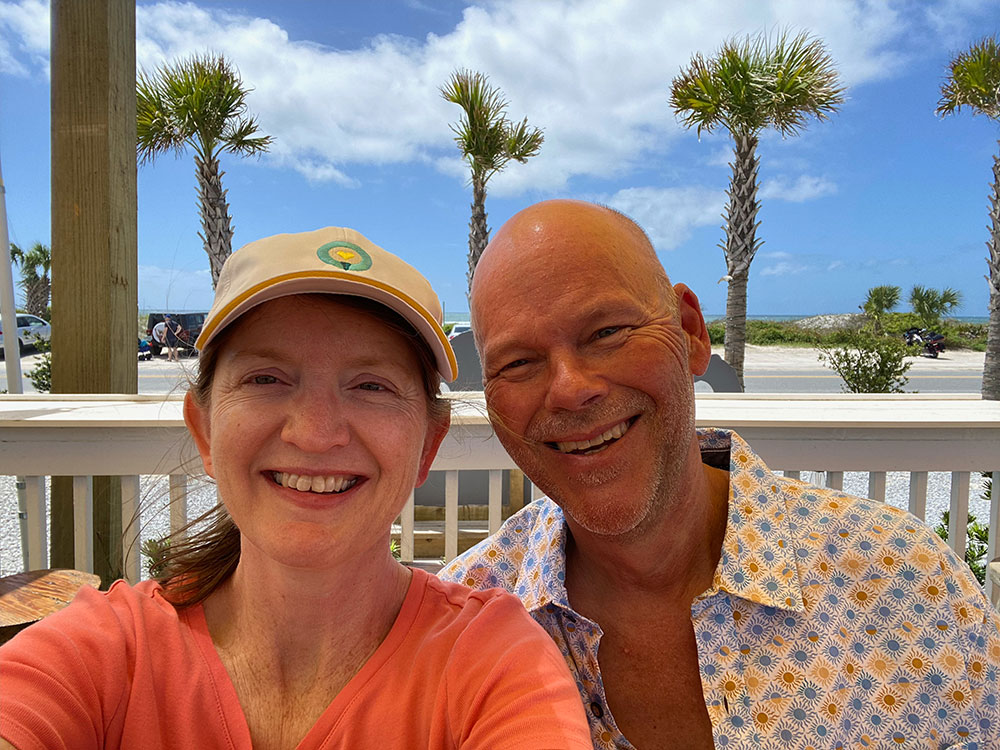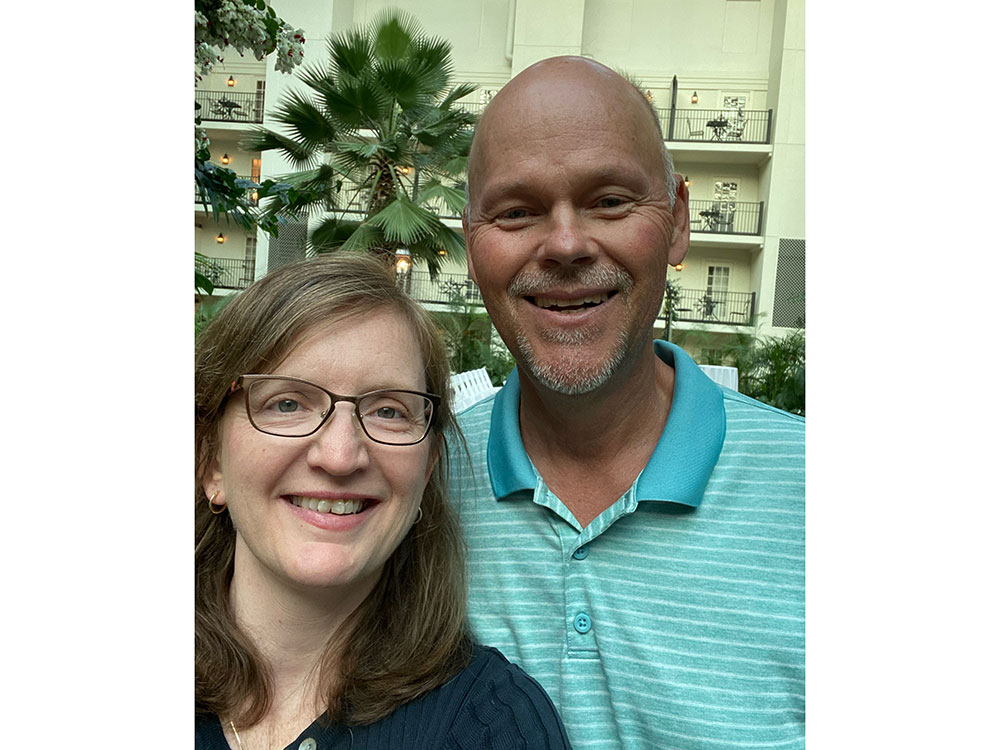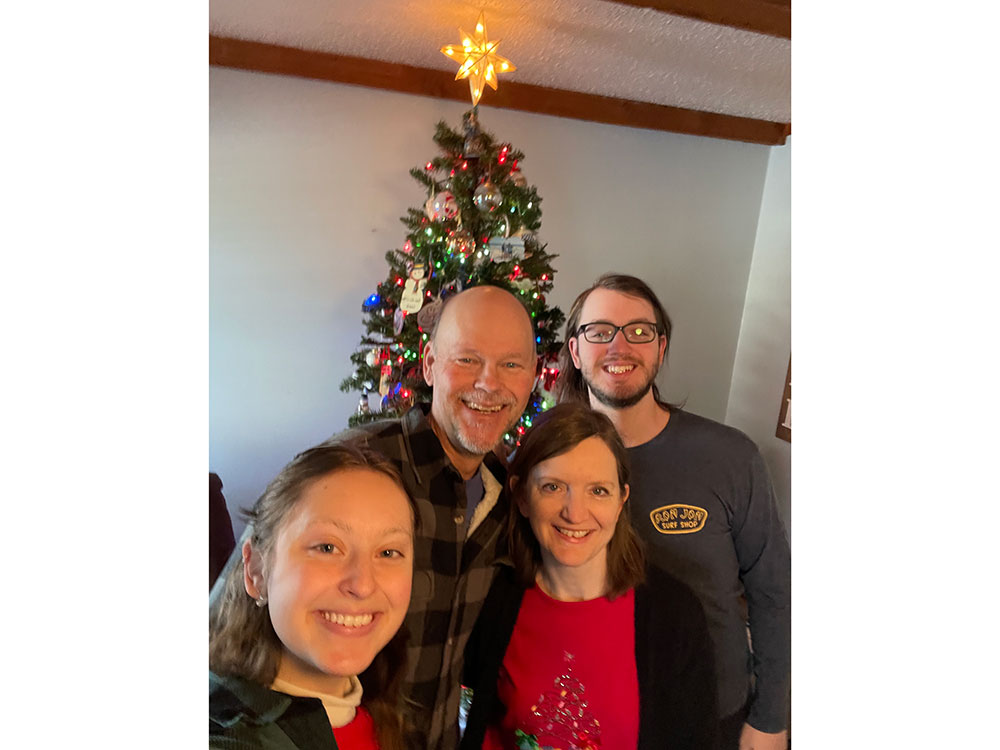


By Lyra Alvis
When Pete Hinerman collapsed at home in April 2025, his wife, Kara, didn’t know just how serious things would become.
Pete, 63, had been battling what they assumed was a stomach virus for a few weeks. Nothing seemed life-threatening — until the day he suddenly vomited and lost consciousness. Kara, a longtime hospital social worker, called 911.
Doctors at Skyline Medical Center quickly discovered the cause: an ulcer had eroded the artery where the stomach meets the small intestine. The rupture caused a massive internal bleed, a condition that can be fatal within minutes if not treated immediately. In Pete’s case, it required fast thinking, a skilled surgical team and an ongoing supply of blood products to keep his body functioning through the trauma.
“He needed a continuous supply of blood just to stay alive during surgery,” Kara recalled.
In total, Pete received 96 units of blood products — an extraordinary amount that exceeds what most trauma centers keep readily available. Without access to that volume of donated blood, the doctors wouldn’t have had the resources they needed to save his life. It was a reminder that medical miracles often depend on everyday people choosing to donate, and those choices ultimately saved Pete’s life.
Kara has been donating blood since high school. Through her work in health care, she’s seen the impact blood donations can have — but experiencing it on such a personal level changed her understanding entirely.
“I always knew blood was important, but I didn’t fully realize how critical it is to have it on hand — and in large amounts,” she said. “If it hadn’t been available in that moment, Pete wouldn’t be here.”
After weeks of recovery, Pete is doing well and regaining his strength. The Hinermans, who have been married for 31 years and live in Middle Tennessee, decided to use the experience to encourage others to give.
As longtime members of Madison Church of Christ, they learned a blood drive had already been scheduled at the church. Kara quickly partnered with the coordinator and shared Pete’s story in the lead-up to the event. The response was overwhelming: 27 people registered, and 24 successfully donated — more than double the church’s usual turnout.
To expand their reach, the Hinermans launched a virtual blood drive through the Red Cross Blood Link program, giving friends and family across the country a way to participate. Their daughter Megan, 25, who lives in Boston, began encouraging her friends to give — many of whom had never donated before but decided to in Pete’s honor.
“We hope this inspires lifelong habits,” Kara said. “You never know when someone you love will need it.”
For the Hinermans, faith and community played a central role in their journey. From the emergency responders to the hospital staff, friends, neighbors and church members, the outpouring of support reminded them that no one gets through crisis alone. They feel a responsibility now to keep raising awareness — not just out of gratitude, but as a call to action.
“People want to help — they just don’t always know how,” Kara said. “Donating blood is a simple, real way to make a difference.”
Pete agrees.
“Every unit helped save my life,” he said. “It really matters.”
To support the Hinermans’ virtual blood drive or schedule an appointment to give, visit RedCrossBlood.org.
Support all the urgent humanitarian needs of the American Red Cross.
Find a drive and schedule a blood donation appointment today.
Your time and talent can make a real difference in people’s lives. Discover the role that's right for you and join us today!